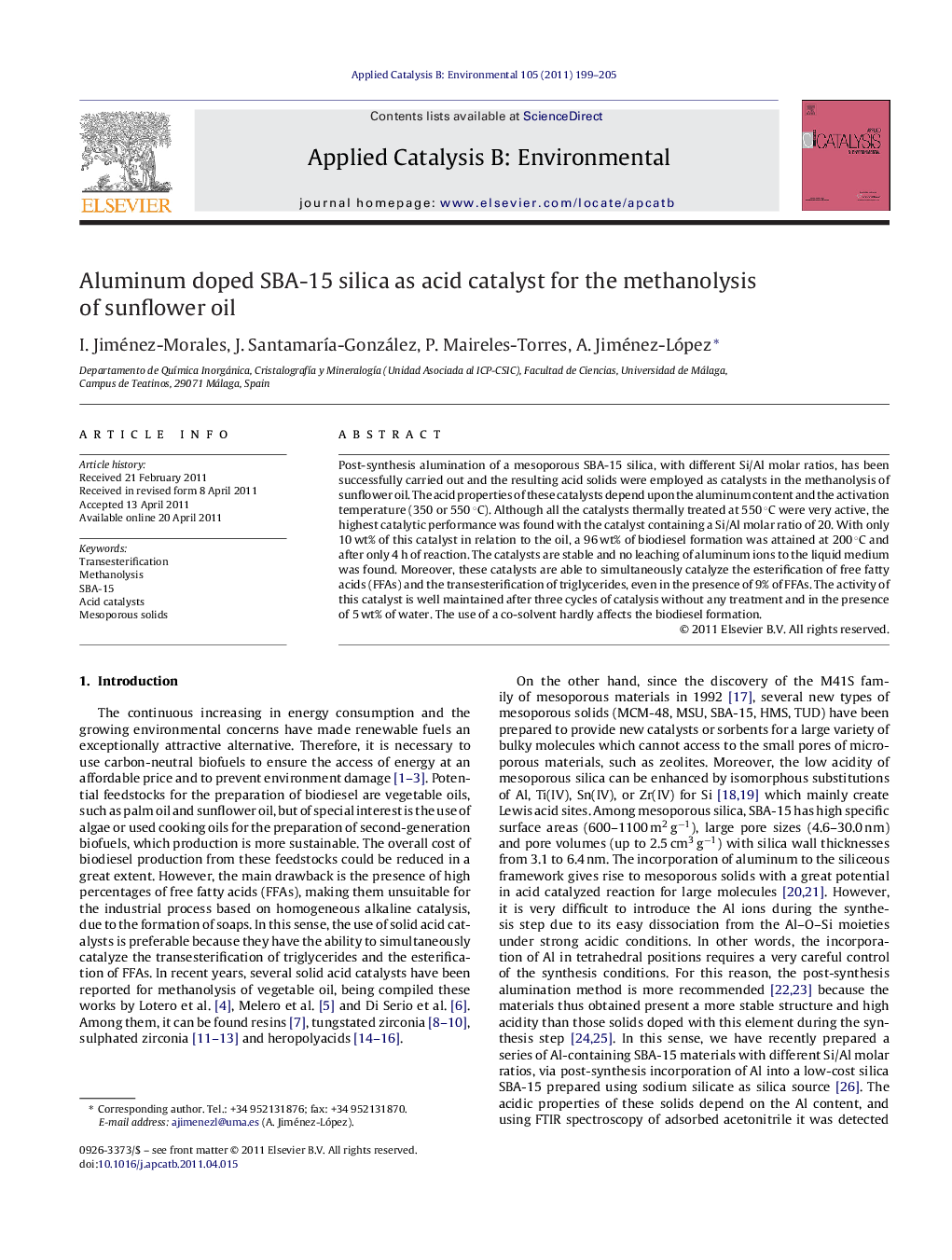| Article ID | Journal | Published Year | Pages | File Type |
|---|---|---|---|---|
| 46808 | Applied Catalysis B: Environmental | 2011 | 7 Pages |
Post-synthesis alumination of a mesoporous SBA-15 silica, with different Si/Al molar ratios, has been successfully carried out and the resulting acid solids were employed as catalysts in the methanolysis of sunflower oil. The acid properties of these catalysts depend upon the aluminum content and the activation temperature (350 or 550 °C). Although all the catalysts thermally treated at 550 °C were very active, the highest catalytic performance was found with the catalyst containing a Si/Al molar ratio of 20. With only 10 wt% of this catalyst in relation to the oil, a 96 wt% of biodiesel formation was attained at 200 °C and after only 4 h of reaction. The catalysts are stable and no leaching of aluminum ions to the liquid medium was found. Moreover, these catalysts are able to simultaneously catalyze the esterification of free fatty acids (FFAs) and the transesterification of triglycerides, even in the presence of 9% of FFAs. The activity of this catalyst is well maintained after three cycles of catalysis without any treatment and in the presence of 5 wt% of water. The use of a co-solvent hardly affects the biodiesel formation.
Graphical abstractFigure optionsDownload full-size imageDownload as PowerPoint slideHighlights► Mesoporous acid solids were obtained by post-synthesis alumination of a SBA-15 silica. ► The catalysts are active in the methanolysis of sunflower oil at 200 °C. ► No leaching of aluminum is detected and catalysts can be reutilized. ► These acid catalysts catalyze the FFAs esterification of and oil transesterification.
